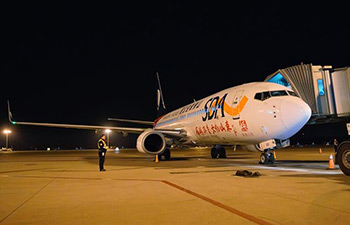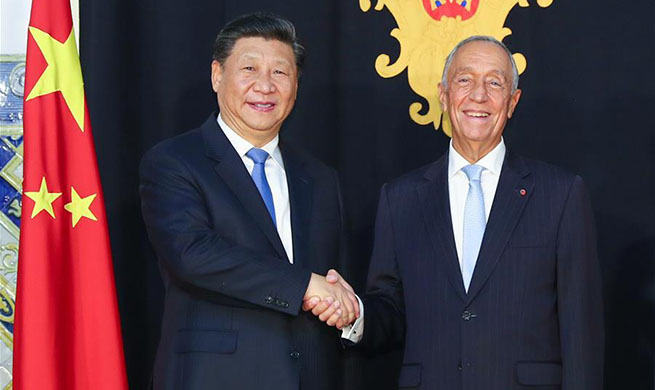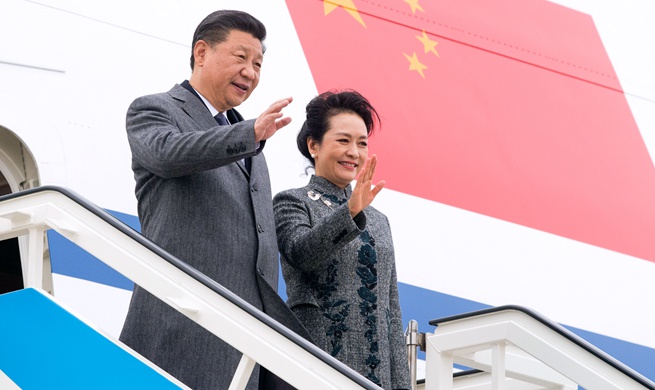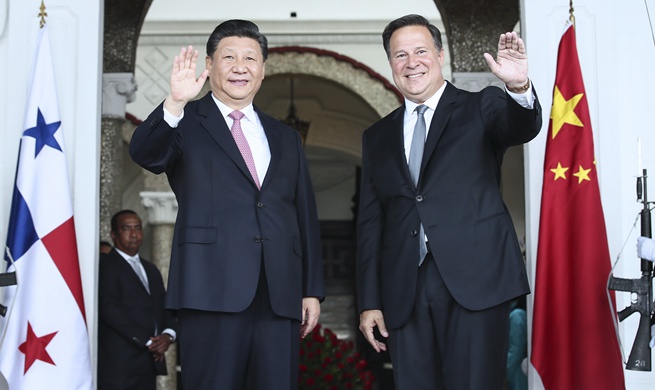NAIROBI, Dec. 5 (Xinhua) -- After completing his university studies in August, Habil Amuko stayed with his uncle in Kenya's capital Nairobi for a month as he tried to get an internship.
After he failed to secure an opportunity, he travelled back home in Busia, western Kenya, to stay with his parents as he continued to scout for an opening.
Before heading back home, Amuko was jittery about the things he would miss. One of them is internet connection since at his uncle's home, he had access to free Wi-Fi through which he would search for internship opportunities.
"My initial fears were unfounded because upon reaching home, I realized that I could readily access the internet through my phone and affordably," said Amuko on Wednesday, adding that he got an internship opportunity in Kisumu, some 70km away, last month after seeing an advertisement on the internet.
High internet penetration across the east African nation has come as a blessing to hundreds of Kenyan youths, giving them opportunities that include jobs and internship, and enabling them to market their produce for those who are farming.
Internet costs have further declined as citizens' use of smart phones rises amid stiff competition among the three telecoms in the east African nation.
Citizens are currently accessing up to 2 GB for 50 Kenyan shillings (0.49 U.S. dollar), down from 4.9 dollars over two years ago.
"I do online work and all this is because of easy internet access and affordability," said Martin Kibochia, an online writer.
"I access the internet through my smart phone by sharing data with my computer, get the assignments, work on them and sent them back. I have been doing the work for two years, earning eight dollars to 10 dollars per article," added Kibochia, who studied English and literature at a university.
Kenya's internet penetration stood at over 41 million subscriptions by June, the latest data from the Communications Authority of Kenya (CA) showed. Over 99 percent of internet subscribers access the service via mobile phones.
Internet penetration has been rising over the years, and CA attributes this transformation to the rollout of Universal Service Fund projects, increased investment in network upgrades by service providers and the rollout of Long Term Evolution (LTE) 4G technologies.
"The increasing availability of affordable smart phones and cheap data bundles has also played a major role in facilitating internet penetration," said the regulator, noting other means Kenyans access the internet include high speed fiber and satellite.
The institution added that the internet market is expected to continue growing as the government undertakes initiatives such as the establishment of more information and communication technology hubs.
"If it was not for the internet and social media, I would not be a happy farmer," said Simon Mutua, an auditor working in Kenya's capital Nairobi.
Mutua, 34, who is a farmer on the side, sells his farm produce - mainly honey - exclusively via social media.
"I have 30 hives and each offers me at least 15kg every three months. A week before I start harvesting, I normally visit my farm in Makueni, I post on my social media accounts mainly on Facebook and on WhatsApp groups inviting buyers and wait for orders and all this is because of affordable internet," he said.
To boost internet penetration further, Kenya is working on setting up internet villages to allow citizens access Wi-Fi hot spots, according to the Ministry of Information, Communications and Technology of Kenya.
The project, said the ministry, would spur business and opportunities in both rural and urban areas.
Bernard Mwaso, a consultant with Edell IT Solution in Nairobi, said Kenya is among the countries in the world with the highest internet penetration though the majority is on mobile phone.
"Still this has created opportunities as Kenyans are selling their wares on social media and doing freelance jobs, especially for the unemployed youths," he said, calling on the government to prioritize provision of free Wi-Fi across the country.













